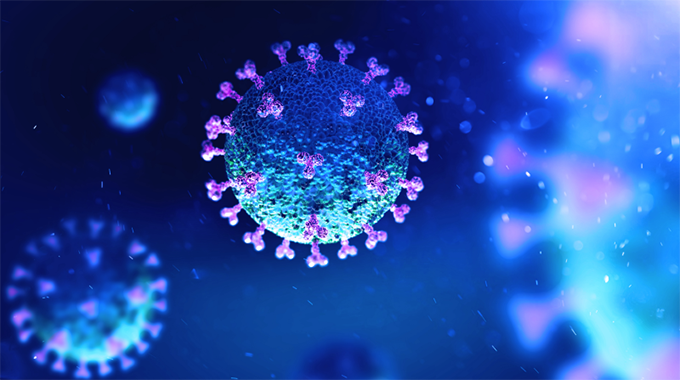Covid-19 booster doses: Who needs them, and are they safe and effective?

More than 100 countries across the globe are offering eligible people a booster Covid-19 vaccine shot as the protection provided by the original dose(s) has been shown to decrease over time.
The rolling out of booster doses was initially met with criticism. In September, the World Health Organization (WHO) urged richer countries with large vaccine supplies to halt these plans until poorer countries were fully vaccinated.
However, the emergence of Omicron, the latest variant of concern, has prompted a reconsideration, especially as preliminary data show that the variant has the ability to evade some of the protection provided by the Pfizer vaccine.
On Wednesday, South Africa’s medicines regulator announced the approval of a third dose of the Pfizer-BioNTech vaccine for use in adults and immunocompromised children aged 12–17 years, Health24 reported.
But how safe and effective are booster doses, and who needs them? Here’s what the data on Pfizer and Johnson & Johnson’s vaccines suggest.
Safety data
A recently published study in The Lancet revealed that up to six different Covid boosters were found to be safe in people who previously received two initial doses of the Pfizer or Oxford-AstraZeneca vaccine, Health24 reported.
Evidence also indicates that there is no rise in the frequency of adverse effects associated with booster shots, and side effects appear to be similar to those of the primary doses of the vaccines.
In the above study, side effects caused by the vaccines generally involved headaches, fatigue, and pain at the injection site, which is also expected with the primary doses.
According to data from the US, side effects of a third dose also tend to be milder than the second, Business Insider reported in November.
Is it effective?
As explained by experts at Johns Hopkins Medicine, the booster dose is designed to help people maintain their level of immunity for longer.
On the other hand, an additional dose is given to individuals who are immunocompromised. It is given to improve their response to their initial vaccine series.
Several studies have demonstrated the effectiveness of a booster dose.
A laboratory study by Pfizer found that while the initial two doses worked well against Omicron, the third dose offered stronger protection. According to the company, the three doses were comparable with the 95 percent effectiveness of its two doses against the original virus.
Two studies: Pfizer booster, Delta
Two studies published in the New England Journal of Medicine this week, which looked at the impact of Pfizer’s vaccine against the Delta variant, also found promising results.
Both studies focused on the effect of a third dose of Pfizer among the Israeli population, where the Delta variant is dominating infections.
Booster lowered infection risk
In one study, the researchers extracted data from July–October 2021 of nearly 4.7 million people, aged 16 years and older, who received their two doses at least five months earlier.
Not only were the numbers of Covid infections lower in the booster group than in the non-booster group, but severe illness was also substantially lower among participants who received the third dose than among those who didn’t.
Booster lowered mortality rate
In the other study, a different team of researchers studied the effect of a third dose of the same vaccine on Covid-related deaths. Participants included in this study were aged 50 years and older and had also received their second dose at least five months earlier.
Participants who received the booster were found to have a 90 percent lower death rate compared with those who did not receive the booster shot.
J&J booster
Healthcare workers who participated in the Sisonke study and received a single dose of the J&J vaccine earlier this year are eligible for a booster shot of J&J until 17 December.
Professor Linda-Gail Bekker, co-investigator of the study, said that two doses of J&J offer “excellent protection” according to the ENSEMBLE 2 data.
“What we know is that the single dose works very well to protect against disease and death. But this additional dose really gives a top-up in protection,” she previously told Health24.
Is mixing and matching better?
Some studies suggest that heterologous, or “mix-and-match”, dosing may offer stronger protection against Covid than a homologous schedule (using the same vaccine as a booster).
This option is currently being offered in other countries.
In South Africa, this dosing method has not been approved yet, the SA Health Products Regulatory Authority (Sahpra) said on Wednesday.
Sahpra said it invited the submission of supportive data in this regard.
Currently, only those who received two doses of the Pfizer vaccine will be eligible for a booster dose of the same vaccine six months after the second dose.
Who should get a booster dose?
Research on waning immunity suggests that those who are at high risk of severe Covid-19 and death, such as people over the age of 60 years and people with underlying medical conditions, will benefit the most from getting a booster shot.
This is because primary vaccination (the initial single dose or two-dose series of a vaccine), may not have induced adequate protection.
Whether boosting is needed in the general population, due to waning immunity or because there may be new variants that can escape immune protection provided by the primary vaccination, is less clear.
In an article published in The Lancet, the authors note that “current evidence does not … appear to show a need for boosting in the general population, in which efficacy against severe disease remains high.” However, this was based on data pre-Omicron, and future research on the new variant may support a booster dose for everyone.
Should it eventually be offered to everyone?
While booster doses should initially be given to those who are at high risk of severe disease, it should also ultimately be offered to everyone else to ensure a high level of protective immunity, immunology expert at UCT, Professor Thomas Scriba, recently told Health24.
Professor of vaccinology at Wits University, Shabir Madhi, also told Health24 that while past infection was likely to protect against severe disease, even a single dose of any Covid-19 vaccine would ensure the person (with past infection) had greater protection against reinfection.
Related to this is a UCLA study that found that a combination of natural- and vaccine-induced immunity may boost the production of a high number of potent antibodies against the virus.
But the findings also raised the possibility that booster shots may be equally effective in improving the ability of antibodies to target different variants of the virus, the authors said.
Get boosted
Madhi stressed the importance of vaccination: “Get vaccinated and a booster dose as soon as it is available – this will help to protect especially against severe disease, but it also reduces the risk of infection and infectiousness.”
Boosting with either the Pfizer vaccine or J&J (for health workers) will likely provide similar protection against severe Covid, even due to Omicron, he said.
*For more Covid-19 research, science and news, click here. You can also sign up for our Daily Dose newsletter here.- News 24








Comments